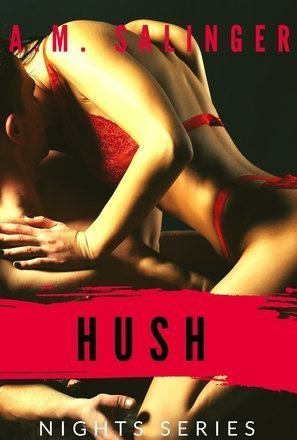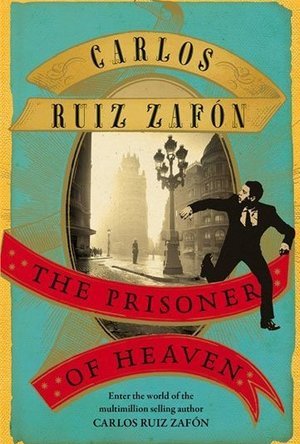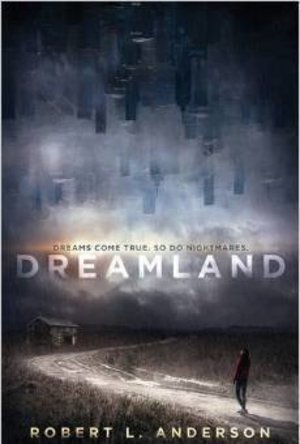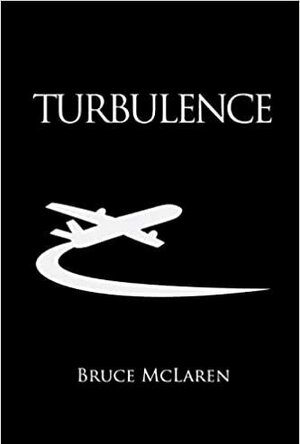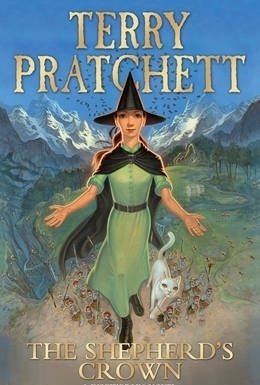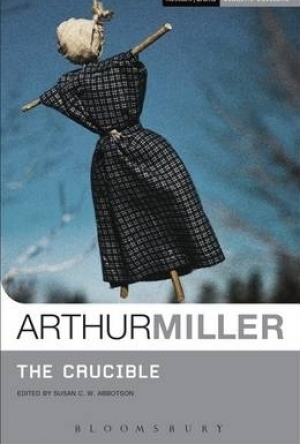Search
Search results
Debbiereadsbook (1595 KP) rated Hush (Nights #8) in Books
Dec 10, 2018
i love this series!
Independent reviewer for Archaeolibrarian, I was gifted my copy of this book.
So! This is book 8 in the Nights Series, but this one really can be read as a stand alone. I'm not sure I recall Lana or Tom from any of the previous books, but that might be me. Also, books one through 6 are male/male pairings and book7 and this one are male/female pairings. Again, I'm not picky, especially when the author pulls off the difference incredibly well, but I know some readers are. Books one through 3, and 6 and 7 are all 5 stars reads from me too.
Lana has been the bane of Tom's existence since he fell in love with her at 16. Having worked for her for 4 years, Tom really has reached the end of his tether, and feels he needs to move on. But when Lana turns up at his door, drunk, demanding sex, what's a guy to do, huh?? He does the right thing, and puts her to bed, while sleeping on the sofa. But, things change between Lana and Tom, and Lana begins to feel things more keenly. These feelings she never realised she had. And the feelings that she wants more than the verbal battling they have every day. But Tom runs, and Lana has to face some facts.
A thoroughly enjoyable addition to this series, even if i found it not quite up to par as the rest.
Oh, don't get me wrong! It's a great book, told from both Lana and Tom's point of view. It's sexy and hot, and I did read it in one sitting.
It just doesn't have the heat level the other books have, and I think I missed that! Ya'll know I made a new shelf for these books, "fan yourself, it's a hot one" and this book doesn't get to join the others there, simply because of that fact.
There is, though, more emotions in this one, I think. Having loved Lana for the better part of his life, Tom's feeling are front and centre, right from the beginning, but Lana's take some digging out. I LOVED the scene when she's talking to Eveline and Lincoln from book 7, about just WHY Lana is annoyed with Tom!
I really have enjoyed this series, and there is just one book to go, and I will be so bloody sad to see the end of these books!
I also find myself curious as to what name this author usually writes under, as AM Salinger is a pen name. I'd LOVE to read something written under that name, just to see the differences. But then again, it might be young adult, or zombies and they really don't float my boat. So, on reflection, no, I don't want to know!
4 solid sexy (but not quite as sexy as the rest) stars
**same worded review will appear elsewhere**
So! This is book 8 in the Nights Series, but this one really can be read as a stand alone. I'm not sure I recall Lana or Tom from any of the previous books, but that might be me. Also, books one through 6 are male/male pairings and book7 and this one are male/female pairings. Again, I'm not picky, especially when the author pulls off the difference incredibly well, but I know some readers are. Books one through 3, and 6 and 7 are all 5 stars reads from me too.
Lana has been the bane of Tom's existence since he fell in love with her at 16. Having worked for her for 4 years, Tom really has reached the end of his tether, and feels he needs to move on. But when Lana turns up at his door, drunk, demanding sex, what's a guy to do, huh?? He does the right thing, and puts her to bed, while sleeping on the sofa. But, things change between Lana and Tom, and Lana begins to feel things more keenly. These feelings she never realised she had. And the feelings that she wants more than the verbal battling they have every day. But Tom runs, and Lana has to face some facts.
A thoroughly enjoyable addition to this series, even if i found it not quite up to par as the rest.
Oh, don't get me wrong! It's a great book, told from both Lana and Tom's point of view. It's sexy and hot, and I did read it in one sitting.
It just doesn't have the heat level the other books have, and I think I missed that! Ya'll know I made a new shelf for these books, "fan yourself, it's a hot one" and this book doesn't get to join the others there, simply because of that fact.
There is, though, more emotions in this one, I think. Having loved Lana for the better part of his life, Tom's feeling are front and centre, right from the beginning, but Lana's take some digging out. I LOVED the scene when she's talking to Eveline and Lincoln from book 7, about just WHY Lana is annoyed with Tom!
I really have enjoyed this series, and there is just one book to go, and I will be so bloody sad to see the end of these books!
I also find myself curious as to what name this author usually writes under, as AM Salinger is a pen name. I'd LOVE to read something written under that name, just to see the differences. But then again, it might be young adult, or zombies and they really don't float my boat. So, on reflection, no, I don't want to know!
4 solid sexy (but not quite as sexy as the rest) stars
**same worded review will appear elsewhere**
Hazel (1853 KP) rated The Prisoner of Heaven in Books
Dec 14, 2018
<i>The Prisoner of Heaven</i> by Carlos Ruiz Zafón is part of a cycle of novels known collectively as <i>The Cemetery of Forgotten Books</i>. At the moment there are three books (the other two being <i>The Shadow of the Wind</i> and <i>The Angel’s Game</i>) and they are all independent stories whose characters and themes overlap, meaning that they can be read in any order. Despite this I think it that you would get more out of each story if you read them in order of publication.
My experience of <i>The Prisoner of Heaven</i> would be different from those who have not read the previous two books. I read <i>The Shadow of the Wind</i> when I was quite young and, although I probably did not understand it that well, I was able to recognize and understand certain references to that particular storyline. I have also read <i>The Angel’s Game</i> – also a number of years ago, which I found quite terrifying – which meant I had the background knowledge of a particular character. Having said that, Zafón provides enough information for new readers to understand what is going on.
The story is written in several parts beginning in Barcelona at Christmas in 1957. The sections set during this time period are narrated by Daniel Sempere (the main character from <i>The Shadow of the Wind</i>) who works alongside his father in the bookshop <i>Sempere & Sons</i>. One day a mysterious customer buys and leaves a copy of an expensive novel for Daniel’s friend and work colleague Fermín Romero de Torres. This leads us to the middle sections, the key part of the plot in which, told in third person narrative in order to differentiate from the “current day” (1957), we discover the character Fermín’s past and who the mysterious customer was. David Martín, the main character in <i>The Angel’s Game</i>, makes a significant appearance in this part.
During the remaining parts, told once again from Daniel’s point of view, I kept expecting something major to happen as I did not feel that the novel had reached it’s climax. But nothing happened which was slightly disappointing (although I was also relieved as I feared I would find this book scary as I did with <i>The Angel’s Game</i> – I didn’t). However I do believe that the final book in this cycle will continue with and tie up the loose ends in <i>The Prisoner of Heaven</i> – another reason to have read the books in order in my view.
Overall I enjoyed the book. I definitely prefer it to <i>The Angel’s Game</i>, which I found confusing and slightly unnerving. I cannot compare it easily with <i>The Shadow of the Wind</i> for, as already mentioned, it has been such a long time since I read it. I would certainly recommend this book (and series) particularly to those who enjoy historical fiction and mysteries.
My experience of <i>The Prisoner of Heaven</i> would be different from those who have not read the previous two books. I read <i>The Shadow of the Wind</i> when I was quite young and, although I probably did not understand it that well, I was able to recognize and understand certain references to that particular storyline. I have also read <i>The Angel’s Game</i> – also a number of years ago, which I found quite terrifying – which meant I had the background knowledge of a particular character. Having said that, Zafón provides enough information for new readers to understand what is going on.
The story is written in several parts beginning in Barcelona at Christmas in 1957. The sections set during this time period are narrated by Daniel Sempere (the main character from <i>The Shadow of the Wind</i>) who works alongside his father in the bookshop <i>Sempere & Sons</i>. One day a mysterious customer buys and leaves a copy of an expensive novel for Daniel’s friend and work colleague Fermín Romero de Torres. This leads us to the middle sections, the key part of the plot in which, told in third person narrative in order to differentiate from the “current day” (1957), we discover the character Fermín’s past and who the mysterious customer was. David Martín, the main character in <i>The Angel’s Game</i>, makes a significant appearance in this part.
During the remaining parts, told once again from Daniel’s point of view, I kept expecting something major to happen as I did not feel that the novel had reached it’s climax. But nothing happened which was slightly disappointing (although I was also relieved as I feared I would find this book scary as I did with <i>The Angel’s Game</i> – I didn’t). However I do believe that the final book in this cycle will continue with and tie up the loose ends in <i>The Prisoner of Heaven</i> – another reason to have read the books in order in my view.
Overall I enjoyed the book. I definitely prefer it to <i>The Angel’s Game</i>, which I found confusing and slightly unnerving. I cannot compare it easily with <i>The Shadow of the Wind</i> for, as already mentioned, it has been such a long time since I read it. I would certainly recommend this book (and series) particularly to those who enjoy historical fiction and mysteries.
<i>I received this book for free through Goodreads First Reads.</i>
“Dreams come true. So do nightmares.” Dea Donahue has spent her entire life travelling from one state to another, starting school after school… and walking other people’s dreams in order to survive. Dea, like her mother, is a dream walker, but she must keep this a secret from everyone else. She must follow the rules: don’t walk a person’s dream more than once, don’t let the dreamer see you; otherwise the monsters will find you. Or so Dea’s eccentric mother says.
Dea’s mother is a very paranoid person, afraid of many things particularly mirrors, and has a strange obsession for clocks. At any moment she may decide they need to pack up and leave, but Dea has had enough. Especially now that she has met Connor, the first boy to ever treat her nicely, the first boy she could call a friend. But when Dea’s mother goes missing, Dea needs to take a closer look at her mother’s obscure fears in order to track her down. At the same time there are rumours going around suggesting that Connor may not be the nice guy Dea thinks he is.
<i>Dreamland</i> is both a fantasy novel and murder mystery. It is as though Robert L. Anderson has written two different stories and then seamlessly merged them together. The main narrative focuses on Dea’s predicament but Connor’s life is constantly present underneath it. The real life quality to the story line makes the incidents Dea experiences all the more creepy.
Part three of the book becomes more fantasy-like which is a little confusing and difficult to see the setting in the way the author perceives it, however the narrative soon returns to the real world and progresses on with Connor’s story. It is not until this point that the reader realizes that <i>Dreamland</i> is part murder mystery.
As a whole, <i>Dreamland</i> is a gripping read that is difficult to put down. Readers are plagued with questions and anticipations as they wait to find out why Dea can dream walk, what the significance of the mirrors and clocks are, and what happened to Dea’s mother. Once these are resolved a whole bunch of new questions crop up.
The ending is mostly satisfying although it is not completely clear what happens next. Although the reader knows where Dea and Connor both end up, it is largely up to our own interpretation as to what their lives are like once the story ends.
<i>Dreamland</i> is definitely a worthy young adult book to read. It is different to other novels in the genre and brings a whole new concept to the table. I expect this book to rise in popularity rather quickly – and if it does not? Well, lots of people are missing out!
“Dreams come true. So do nightmares.” Dea Donahue has spent her entire life travelling from one state to another, starting school after school… and walking other people’s dreams in order to survive. Dea, like her mother, is a dream walker, but she must keep this a secret from everyone else. She must follow the rules: don’t walk a person’s dream more than once, don’t let the dreamer see you; otherwise the monsters will find you. Or so Dea’s eccentric mother says.
Dea’s mother is a very paranoid person, afraid of many things particularly mirrors, and has a strange obsession for clocks. At any moment she may decide they need to pack up and leave, but Dea has had enough. Especially now that she has met Connor, the first boy to ever treat her nicely, the first boy she could call a friend. But when Dea’s mother goes missing, Dea needs to take a closer look at her mother’s obscure fears in order to track her down. At the same time there are rumours going around suggesting that Connor may not be the nice guy Dea thinks he is.
<i>Dreamland</i> is both a fantasy novel and murder mystery. It is as though Robert L. Anderson has written two different stories and then seamlessly merged them together. The main narrative focuses on Dea’s predicament but Connor’s life is constantly present underneath it. The real life quality to the story line makes the incidents Dea experiences all the more creepy.
Part three of the book becomes more fantasy-like which is a little confusing and difficult to see the setting in the way the author perceives it, however the narrative soon returns to the real world and progresses on with Connor’s story. It is not until this point that the reader realizes that <i>Dreamland</i> is part murder mystery.
As a whole, <i>Dreamland</i> is a gripping read that is difficult to put down. Readers are plagued with questions and anticipations as they wait to find out why Dea can dream walk, what the significance of the mirrors and clocks are, and what happened to Dea’s mother. Once these are resolved a whole bunch of new questions crop up.
The ending is mostly satisfying although it is not completely clear what happens next. Although the reader knows where Dea and Connor both end up, it is largely up to our own interpretation as to what their lives are like once the story ends.
<i>Dreamland</i> is definitely a worthy young adult book to read. It is different to other novels in the genre and brings a whole new concept to the table. I expect this book to rise in popularity rather quickly – and if it does not? Well, lots of people are missing out!
Deborah (162 KP) rated Richard III: The King in the Car Park in Books
Dec 21, 2018
I quote from the final page of this publication: "The writer of this book will face similar virulent criticism. It will be savaged in the book reviews on Amazon, mainly by non-readers, to take its ratings and thus popularity down." In fact, this is the last, but by no means the only rant by the author who appears to have a definite chip on his shoulder for some reason. Since he subjects Thomas Penn's work, 'The Winter King' to such virulent criticism, one can only suspect that he was turned down by Penn's publisher. One can hardly be surprised. I have read this book, despite wanting on a number of occasions to give up in disgust. It is full of errors of spelling (e.g. youngest for younger, now instead of not), so has evidently not had either a proof reader or an editor. There are also many factual errors with names and titles becoming hopelessly confused. On one page we're told that Sir James Tyrell was hanged and a couple of pages later we're told that Henry Tudor was so kind as to merely condescend to cut his head off!
I will admit that with pro-Ricardian sympathies I was probably never going to like this book, but it is a bit of a mess and feels like another case of jumping on the bandwagon. There is no index, no footnotes/endnotes and only a partial list of sources, which is enough to raise questions about academic rigour. If you are going to publish opinions, particular in The Great Debate, these really should be backed up by factual evidence. I think I am most irked by the hypocrisy of Mr Breverton telling us at one point that he is going to take a fresh impartial look at the subject and then immediately showing us exactly which colour he prefers his roses.
His list, near the back of the volume, of all the 'crimes' he thinks Richard III was guilty of really does teeter on the brink of blindness and absurdity. Apparently he is guilty in the case of the Earl of Warwick, son of Richard's older brother, George of Clarence, but whose claim to the throne was barred by his father's attainder (always reversible, but Warwick was then only a child of about 8 years). I'm pretty sure this Warwick was sent to Sheriff Hutton Castle to be brought up with other young persons, as befitted his status by Richard. Of course, as soon as Henry Tudor usurped the throne, this boy was locked up in the Tower only to be executed later on a trumped up charge. I think I know who the guilty party is in that case.
That is my frank opinion on this volume; I will now expect said author to savage me as he has everyone else on Amazon who has pointed out the self-evident shortcomings in this work.
I will admit that with pro-Ricardian sympathies I was probably never going to like this book, but it is a bit of a mess and feels like another case of jumping on the bandwagon. There is no index, no footnotes/endnotes and only a partial list of sources, which is enough to raise questions about academic rigour. If you are going to publish opinions, particular in The Great Debate, these really should be backed up by factual evidence. I think I am most irked by the hypocrisy of Mr Breverton telling us at one point that he is going to take a fresh impartial look at the subject and then immediately showing us exactly which colour he prefers his roses.
His list, near the back of the volume, of all the 'crimes' he thinks Richard III was guilty of really does teeter on the brink of blindness and absurdity. Apparently he is guilty in the case of the Earl of Warwick, son of Richard's older brother, George of Clarence, but whose claim to the throne was barred by his father's attainder (always reversible, but Warwick was then only a child of about 8 years). I'm pretty sure this Warwick was sent to Sheriff Hutton Castle to be brought up with other young persons, as befitted his status by Richard. Of course, as soon as Henry Tudor usurped the throne, this boy was locked up in the Tower only to be executed later on a trumped up charge. I think I know who the guilty party is in that case.
That is my frank opinion on this volume; I will now expect said author to savage me as he has everyone else on Amazon who has pointed out the self-evident shortcomings in this work.

Interactive Alphabet ABC's
Education and Games
App
Positively, the BEST Alphabet experience from crib to kindergarten! Baby - A guided A to Z touchable...
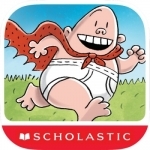
The Adventures of Captain Underpants
Book and Education
App
**Best Apps for Ages 6-8 – selected by Apple** **What’s Hot! – selected by Apple** **Featured...
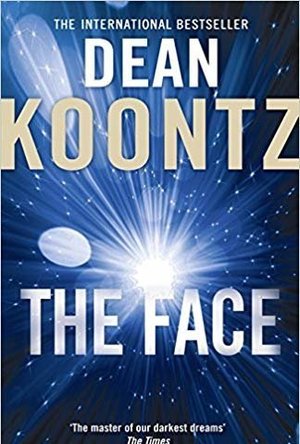
The Face
Book
Acknowledged as "America's most popular suspense novelist"("Rolling Stone" ) and as one of today's...
BookInspector (124 KP) rated Turbulence (The Wanderer #1) in Books
Sep 24, 2020
This book is really different from what I would normally read, and I think it’s one of those “either you love it or hate it” books and it definitely should not be judged by its cover. (I think it doesn’t really represent the book and it looks very cold) I read it in one day because to me it was awesome. This book is a collection of twelve trips between different destinations and every story talks about his encounters with women. The main character is an archaeologist and this journey starts when he was 22 years old. He doesn’t have a name or an obvious background story, but the reader can get a lot of snippets of his life through the stories. Everything, from appearance, careers even destinations suggests this book to be somehow directly related to the author himself. Was it real encounters or fictional? That’s what left me very intrigued.
I don’t normally like philosophical reads, but in this one, author disguised and blended in these parts very creatively. I do love to learn new things and facts, especially if it is related to history, and for me, all these parts were an absolute joy to read. I really loved different settings chosen for this novel as well, as I got a glimpse of different cultures and different countries. I really liked that author chose different story variations in this book, sometimes he used to get lucky with the women he met and sometimes he missed the chance or chose not to get involved. It was refreshing and very believable changes of course and I was very interested of what the next story will bring. My absolute favourite was the religious discussions. I think the author will make many Christians unhappy, but I loved all the supporting historical facts he mentioned in this book regarding religion. I don’t even have to mention any research for this book, the author has a PhD degree in history/archaeology so I trust all the information he provided. :)
The writing style of this novel is very poetic and absolutely beautiful. B. McLaren has an amazing way of portraying different topics and uniting them all in a wonderfully flowing story. I do have to throw in a disclaimer that there are some discussion and scenes regarding sex and alcohol, so this book is not suitable for young readers. The chapters were quite long for my liking, but they passed quite quickly because I used to get very absorbed in the story itself. I liked how the author decided to end this story and I think it rounded up this book well. So, to conclude, I had a great fun reading this funny, philosophical one man’s journey through life and his encounters with different women all over the world. I learned a lot, so if you like history, travelling and a little bit of philosophical discussion I think you will enjoy this book :)
I don’t normally like philosophical reads, but in this one, author disguised and blended in these parts very creatively. I do love to learn new things and facts, especially if it is related to history, and for me, all these parts were an absolute joy to read. I really loved different settings chosen for this novel as well, as I got a glimpse of different cultures and different countries. I really liked that author chose different story variations in this book, sometimes he used to get lucky with the women he met and sometimes he missed the chance or chose not to get involved. It was refreshing and very believable changes of course and I was very interested of what the next story will bring. My absolute favourite was the religious discussions. I think the author will make many Christians unhappy, but I loved all the supporting historical facts he mentioned in this book regarding religion. I don’t even have to mention any research for this book, the author has a PhD degree in history/archaeology so I trust all the information he provided. :)
The writing style of this novel is very poetic and absolutely beautiful. B. McLaren has an amazing way of portraying different topics and uniting them all in a wonderfully flowing story. I do have to throw in a disclaimer that there are some discussion and scenes regarding sex and alcohol, so this book is not suitable for young readers. The chapters were quite long for my liking, but they passed quite quickly because I used to get very absorbed in the story itself. I liked how the author decided to end this story and I think it rounded up this book well. So, to conclude, I had a great fun reading this funny, philosophical one man’s journey through life and his encounters with different women all over the world. I learned a lot, so if you like history, travelling and a little bit of philosophical discussion I think you will enjoy this book :)
David McK (3649 KP) rated The Shepherd's Crown in Books
Jan 28, 2019
THE FINAL DISCWORLD BOOK
Those four words were always going to make a long-time Discworld reader feel quite emotional, making it hard to objectively review the novel itself: are you reviewing this last peek into Pratchett's mirror reality, or are you reviewing the entire 41-book series? I'm going to try both:
THE SERIES
The first Disworld book I read (I'm pretty sure it was [b: Pyramids|64217|Pyramids (Discworld, #7)|Terry Pratchett|https://images.gr-assets.com/books/1439098306s/64217.jpg|968512]) wasn't actually the first in the series (that would be [b: The Colour of Magic|833512|The Colour of Magic The Illustrated Screenplay|Vadim Jean|https://images.gr-assets.com/books/1347346368s/833512.jpg|17589693]), although I did later go back and read the earlier works. Reading them in order released (as opposed to one of the numerous Discworld Reading Order Guides: I'm quite partial to the 'Unofficial Discworld Reading Order Guide'), you can see how Terry Pratchett's writing style evolved, how he moved from outright satire to a more subtle comedy fantasy that holds a mirror up to real-world issues. Personally, I feel he was at his best at around the mid-way point of the series (say, [b: Maskerade|64305|Maskerade The Play|Terry Pratchett|https://images.gr-assets.com/books/1170622047s/64305.jpg|62427] or [b: Men at Arms|7557548|Men at Arms The Play|Terry Pratchett|https://images.gr-assets.com/books/1353573652s/7557548.jpg|9910828], after he'd found his feet (so-to-speak), but before the 'embuggerance' of his posterior cortical atrophy set in and the novels - perhaps understandably - started becoming almost too serious.
Throughout the series, there was a rich tapestry of characters introduced, from CMOT Dibbler through to the Patrician of Ankh-Morpork, with certain groups of characters (e.g. The City Watch) effectively becoming a sub-series in their own right. One of those groups - Granny Weatherwax (first introduced in [b: Equal Rites|34507|Equal Rites (Discworld, #3; Witches, #1)|Terry Pratchett|https://images.gr-assets.com/books/1407706800s/34507.jpg|583611] and The Witches of Lancre (first introduced in [b: Wyrd Sisters|233664|Wyrd Sisters The Play|Terry Pratchett|https://images.gr-assets.com/books/1388363090s/233664.jpg|17589683] - would later themselves have 'guest spots' in another group of such characters, ostensibly written for Young Adult Readers but still very enjoyable for older; the Nac Mac Feegles (Crivens!) and Tiffany Aching, both of who first appeared in [b: The Wee Free Men|7881001|The Wee Free Men The Beginning (Discworld, #30 & #32)|Terry Pratchett|https://images.gr-assets.com/books/1388181365s/7881001.jpg|22017239]. Which nicely brings me to:
THE NOVEL ITSELF
'The Shepherd's Crown' sees a return of both Tiffany Aching, now a young Witch setting out on her career path, and those Nac Mac Feegles. There's a strong sense of change throughout, kicked off by the surprising early exit of a previous major character in the entire series, leading to old foes - the Elves - to try to make their way back into the world. These Elves, remember, are *not* the dainty do-gooders of Tolkien: these are nasty, malicious, self-serving creatures who last attempted to invade in [b: Lords and Ladies|34529|Lords and Ladies (Discworld, #14; Witches #4)|Terry Pratchett|https://images.gr-assets.com/books/1469186110s/34529.jpg|1185086], before eventually being defeated by Granny Weatherwax, Nanny Ogg and Magrat Garlik. Those three characters make a return in this, as well as bit-parts for the Arch-Chancellor of Unseen University, Ponder Stibbons (and HEX) alongside King Verence and the Patrician. Despite all these, the novel, however, is really Tiffany's story, and of how she finds her feet in the circumstances into which she is rather abruptly thrown. There's also a plot element that recalls [b: Equal Rites|34507|Equal Rites (Discworld, #3; Witches, #1)|Terry Pratchett|https://images.gr-assets.com/books/1407706800s/34507.jpg|583611]: that of a person wanting to do a role that is generally considered to be that for a member of the opposite sex.
As always, footnotes are present and correct, with the novel even raising a few laugh-out-loud moments. While the story does finish with the words 'THE END', the world itself will continue on: all that has come to an end is our ability to peek into it.
In the words of the Nac Mac Feegle: "Waily waily waily ..."
Rating for the series: 5*
Rating for the novel: 4*
Those four words were always going to make a long-time Discworld reader feel quite emotional, making it hard to objectively review the novel itself: are you reviewing this last peek into Pratchett's mirror reality, or are you reviewing the entire 41-book series? I'm going to try both:
THE SERIES
The first Disworld book I read (I'm pretty sure it was [b: Pyramids|64217|Pyramids (Discworld, #7)|Terry Pratchett|https://images.gr-assets.com/books/1439098306s/64217.jpg|968512]) wasn't actually the first in the series (that would be [b: The Colour of Magic|833512|The Colour of Magic The Illustrated Screenplay|Vadim Jean|https://images.gr-assets.com/books/1347346368s/833512.jpg|17589693]), although I did later go back and read the earlier works. Reading them in order released (as opposed to one of the numerous Discworld Reading Order Guides: I'm quite partial to the 'Unofficial Discworld Reading Order Guide'), you can see how Terry Pratchett's writing style evolved, how he moved from outright satire to a more subtle comedy fantasy that holds a mirror up to real-world issues. Personally, I feel he was at his best at around the mid-way point of the series (say, [b: Maskerade|64305|Maskerade The Play|Terry Pratchett|https://images.gr-assets.com/books/1170622047s/64305.jpg|62427] or [b: Men at Arms|7557548|Men at Arms The Play|Terry Pratchett|https://images.gr-assets.com/books/1353573652s/7557548.jpg|9910828], after he'd found his feet (so-to-speak), but before the 'embuggerance' of his posterior cortical atrophy set in and the novels - perhaps understandably - started becoming almost too serious.
Throughout the series, there was a rich tapestry of characters introduced, from CMOT Dibbler through to the Patrician of Ankh-Morpork, with certain groups of characters (e.g. The City Watch) effectively becoming a sub-series in their own right. One of those groups - Granny Weatherwax (first introduced in [b: Equal Rites|34507|Equal Rites (Discworld, #3; Witches, #1)|Terry Pratchett|https://images.gr-assets.com/books/1407706800s/34507.jpg|583611] and The Witches of Lancre (first introduced in [b: Wyrd Sisters|233664|Wyrd Sisters The Play|Terry Pratchett|https://images.gr-assets.com/books/1388363090s/233664.jpg|17589683] - would later themselves have 'guest spots' in another group of such characters, ostensibly written for Young Adult Readers but still very enjoyable for older; the Nac Mac Feegles (Crivens!) and Tiffany Aching, both of who first appeared in [b: The Wee Free Men|7881001|The Wee Free Men The Beginning (Discworld, #30 & #32)|Terry Pratchett|https://images.gr-assets.com/books/1388181365s/7881001.jpg|22017239]. Which nicely brings me to:
THE NOVEL ITSELF
'The Shepherd's Crown' sees a return of both Tiffany Aching, now a young Witch setting out on her career path, and those Nac Mac Feegles. There's a strong sense of change throughout, kicked off by the surprising early exit of a previous major character in the entire series, leading to old foes - the Elves - to try to make their way back into the world. These Elves, remember, are *not* the dainty do-gooders of Tolkien: these are nasty, malicious, self-serving creatures who last attempted to invade in [b: Lords and Ladies|34529|Lords and Ladies (Discworld, #14; Witches #4)|Terry Pratchett|https://images.gr-assets.com/books/1469186110s/34529.jpg|1185086], before eventually being defeated by Granny Weatherwax, Nanny Ogg and Magrat Garlik. Those three characters make a return in this, as well as bit-parts for the Arch-Chancellor of Unseen University, Ponder Stibbons (and HEX) alongside King Verence and the Patrician. Despite all these, the novel, however, is really Tiffany's story, and of how she finds her feet in the circumstances into which she is rather abruptly thrown. There's also a plot element that recalls [b: Equal Rites|34507|Equal Rites (Discworld, #3; Witches, #1)|Terry Pratchett|https://images.gr-assets.com/books/1407706800s/34507.jpg|583611]: that of a person wanting to do a role that is generally considered to be that for a member of the opposite sex.
As always, footnotes are present and correct, with the novel even raising a few laugh-out-loud moments. While the story does finish with the words 'THE END', the world itself will continue on: all that has come to an end is our ability to peek into it.
In the words of the Nac Mac Feegle: "Waily waily waily ..."
Rating for the series: 5*
Rating for the novel: 4*
Becs (244 KP) rated The Crucible in Books
Oct 2, 2019
I absolutely love Arthur Miller and anything regarding witches/ the Salem Trials. So, the crucible for me is a five-star novel. Can we just take a moment to admire the writers of the 50’s and older as they don’t seem to be getting much hype lately? Like, literary classics are deemed school reads and not your typical everyday read. THIS NEEDS TO CHANGE.
Reading these in school and then giving them a reread five years after graduating, has shown a new light onto these novels. And has made me appreciate them more as a whole compared to when I read them in high school. If you haven’t read many literary classics, I recommend starting with something by Arthur Miller or George Orwell. Yes, they may be a bit hard to get into at first, but give it time. That’s the key when reading any book!
The Crucible by Arthur Miller
Genre: Literary Classic, Historical Fiction, Plays, Drama
Synopsis: “I believe that the reader will discover here the essential nature of one of the strangest and most awful chapters in human history,” Arthur Miller wrote of his classic play about the witch-hunts and trials in seventeenth-century Salem, Massachusetts. Based on historical people and real events, Miller’s drama is a searing portrait of a community engulfed by hysteria. In the rigid theocracy of Salem, rumors that women are practicing witchcraft galvanize the town’s most basic fears and suspicions; and when a young girl accuses Elizabeth Proctor of being a witch, self-righteous church leaders and townspeople insist that Elizabeth be brought to trial. The ruthlessness of the prosecutors and the eagerness of neighbor to testify against neighbor brilliantly illuminate the destructive power of socially sanctioned violence.
Written in 1953, The Crucible is a mirror Miller uses to reflect the anti-communist hysteria inspired by Senator Joseph McCarthy’s “witch-hunts” in the United States. Within the text itself, Miller contemplates the parallels, writing, “Political opposition… is given an inhumane overlay, which then justifies the abrogation of all normally applied customs of civilized behavior. A political policy is equated with moral right, and opposition to it with diabolical malevolence.”
WIth an introduction by Christopher Bigsby.
Audience/ Reading Level: High School +
Interests: Plays, Drama, Witches, the Salem Trials, Arthur Miller, Literary Classics.
Point of View: Third Person Omniscient
Difficulty Reading: With every literary classic, you run into the problem of the first 30% of the novel being a bore or hard to get into. The Crucible was only a bore in parts but taking the novel as a whole, it was a pretty easy read.
Promise: “I believe that the reader will discover here the essential nature of one of the strangest and most awful chapters in human history.”
Insights: The Crucible is based on true events and Arthur Miller has a way of explaining everything that was wrong with the way people lived. I.E. Woman did not have rights until the early 1920’s. This didn’t stop some countries/states to still not allow the woman to have rights. But taking The Crucible into perspective, the women that were charged with witchcraft were unable to explain themselves to the men. The men believed the accusers either because they were sleeping with them or because they were their family. Luckily, nowadays we don’t have this extreme of situations but it still does exist. The Crucible teaches all of its readers, young or old, many valuable lessons that are sometimes hard to witness. Plus, Miller correlates the events in the Crucible to the anti-communist McCarthyism of the 1950s.
Favorite Quotes: “I speak my own sins; I cannot judge another. I have no tongue for it.”
“Because it is my name! Because I cannot have another in my life! Because I lie and sign myself to lies! Because I am not worth the dust on the feet of them that hang! How may I live without my name? I have given you my soul; leave me my name!”
“You are pulling down heaven and raising up a whore”
What will you gain: A love for another literary classic and a love for Arthur Miller if you do not already love his writing. Plus, a great historical read.
Aesthetics: The witches, the trials, the way people take sides, I mean I can’t say much more without giving spoilers away. We wouldn’t want that, now would we?
“It is rare for people to be asked the question which puts them squarely in front of themselves”
Reading these in school and then giving them a reread five years after graduating, has shown a new light onto these novels. And has made me appreciate them more as a whole compared to when I read them in high school. If you haven’t read many literary classics, I recommend starting with something by Arthur Miller or George Orwell. Yes, they may be a bit hard to get into at first, but give it time. That’s the key when reading any book!
The Crucible by Arthur Miller
Genre: Literary Classic, Historical Fiction, Plays, Drama
Synopsis: “I believe that the reader will discover here the essential nature of one of the strangest and most awful chapters in human history,” Arthur Miller wrote of his classic play about the witch-hunts and trials in seventeenth-century Salem, Massachusetts. Based on historical people and real events, Miller’s drama is a searing portrait of a community engulfed by hysteria. In the rigid theocracy of Salem, rumors that women are practicing witchcraft galvanize the town’s most basic fears and suspicions; and when a young girl accuses Elizabeth Proctor of being a witch, self-righteous church leaders and townspeople insist that Elizabeth be brought to trial. The ruthlessness of the prosecutors and the eagerness of neighbor to testify against neighbor brilliantly illuminate the destructive power of socially sanctioned violence.
Written in 1953, The Crucible is a mirror Miller uses to reflect the anti-communist hysteria inspired by Senator Joseph McCarthy’s “witch-hunts” in the United States. Within the text itself, Miller contemplates the parallels, writing, “Political opposition… is given an inhumane overlay, which then justifies the abrogation of all normally applied customs of civilized behavior. A political policy is equated with moral right, and opposition to it with diabolical malevolence.”
WIth an introduction by Christopher Bigsby.
Audience/ Reading Level: High School +
Interests: Plays, Drama, Witches, the Salem Trials, Arthur Miller, Literary Classics.
Point of View: Third Person Omniscient
Difficulty Reading: With every literary classic, you run into the problem of the first 30% of the novel being a bore or hard to get into. The Crucible was only a bore in parts but taking the novel as a whole, it was a pretty easy read.
Promise: “I believe that the reader will discover here the essential nature of one of the strangest and most awful chapters in human history.”
Insights: The Crucible is based on true events and Arthur Miller has a way of explaining everything that was wrong with the way people lived. I.E. Woman did not have rights until the early 1920’s. This didn’t stop some countries/states to still not allow the woman to have rights. But taking The Crucible into perspective, the women that were charged with witchcraft were unable to explain themselves to the men. The men believed the accusers either because they were sleeping with them or because they were their family. Luckily, nowadays we don’t have this extreme of situations but it still does exist. The Crucible teaches all of its readers, young or old, many valuable lessons that are sometimes hard to witness. Plus, Miller correlates the events in the Crucible to the anti-communist McCarthyism of the 1950s.
Favorite Quotes: “I speak my own sins; I cannot judge another. I have no tongue for it.”
“Because it is my name! Because I cannot have another in my life! Because I lie and sign myself to lies! Because I am not worth the dust on the feet of them that hang! How may I live without my name? I have given you my soul; leave me my name!”
“You are pulling down heaven and raising up a whore”
What will you gain: A love for another literary classic and a love for Arthur Miller if you do not already love his writing. Plus, a great historical read.
Aesthetics: The witches, the trials, the way people take sides, I mean I can’t say much more without giving spoilers away. We wouldn’t want that, now would we?
“It is rare for people to be asked the question which puts them squarely in front of themselves”
